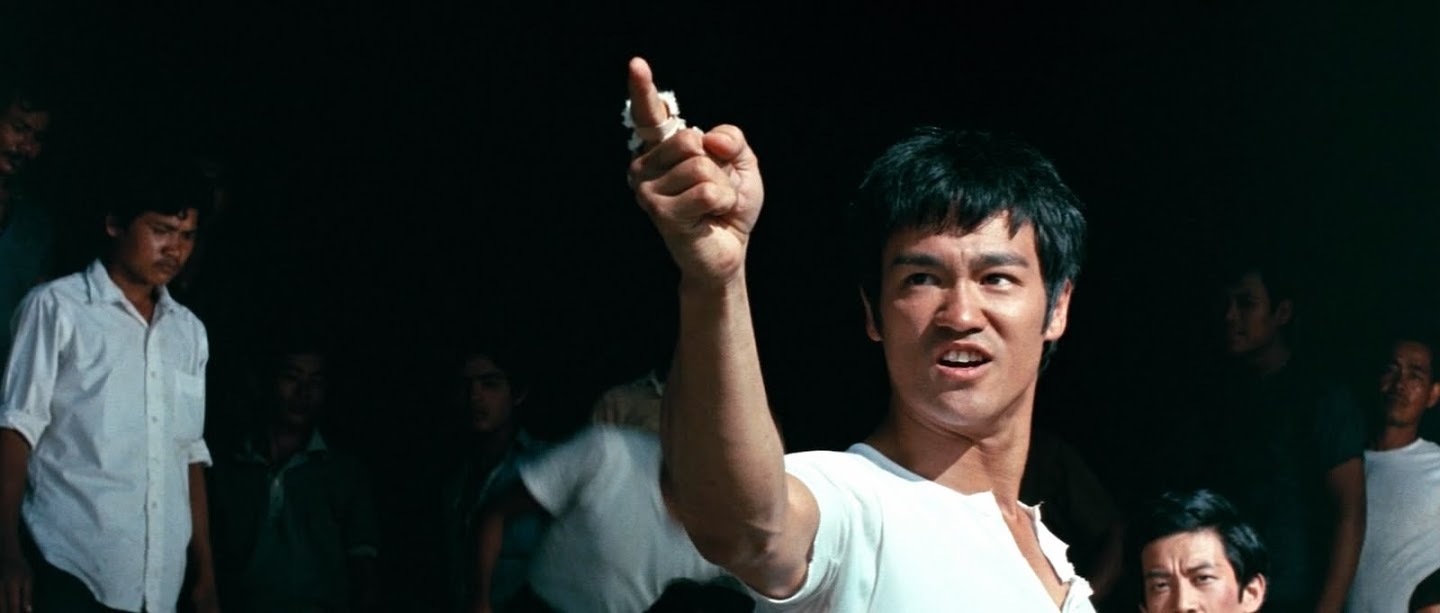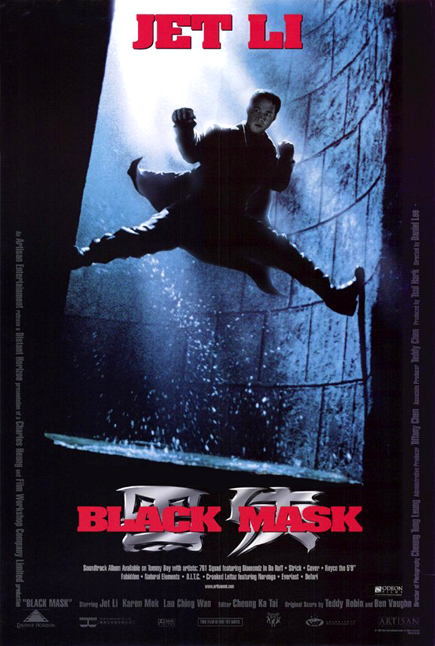
Written by Bruce Lee and Lo Wei
Directed by Lo Wei
Hong Kong, 1971
Cheng Chao-an (Bruce Lee) arrives at a small town via travel boat accompanied by his uncle Lu (Chia Ching). Cheng has decided to relocate to a more peaceful, quaint location to find work and abide by his mother’s bidding to stay out of fights. Lu presents Cheng to the many cousins he will be staying with under the same roof, among them headstrong martial arts practitioner Hsu Chien (James Tien) and the attractive Chiao Mei (Maria Yi). Through his familial connections Cheng earns a place at the local ice factory but things are not all what they seem upon first glance. Their manager occasionally requires employers to visit him to his office or the factory’s owner at the latter’s personal estate never for them to return. Two of Cheng’s cousins are the most recent victims to vanish in thin air. The manager and owner claim innocence, but as Cheng soon discovers, the duo are using the factory as a front for their drug smuggling operations. He also discovers that sometimes one simply can’t stay out of a fight to defend family!
The Big Boss represents Bruce Lee’s first foray into the major motion picture business following a brief stint as Kato in a Green Hornet show that lasted only one season in the late 1960s. As history has shown, the film made the American-Chinese actor a runaway sensation across Asia and the world. As word has it, Lee’s charisma was so apparent during the pre-production casting process that when he originally read for actor Hsu Chien’s role, the filmmakers were convinced a switch was necessary and offered Lee the lead instead. Said personality is very visible onscreen, even in the smallest details when Lee is not necessarily the focal point of a scene.
In the early stages the movie conveys the notion that Cheng must withhold from engaging in battles at his mother’s request, the problem being that the quaint appearance of the town he has adopted as his new home is no more than a façade for the corruption which has seeped its way in via gambling and drug cartels. As such, there is an alarming number of mob enforcers ready and willing to put debtors and critics in their place. Because of the importance he holds to his mother’s wish, he must stand idly by whenever cousin Hsu Chien comes to the defense of those harassed, beating the crap out of thugs. Director Lo Wei will keep cutting back and forth between Hsu Chien’s admittedly competent martial arts skills as he sends the villains from whence they came and Cheng taking the jade necklace his mother gave in his hands and rolling his eyes exaggeratedly, visibly annoyed that he cannot help out his cousin in beating the crap out of the punks. These moments are accompanied by a childish music box-like tune that makes them all the more hilarious.
At the time of the picture’s release, Bruce Lee was still a relatively unknown entity among the worldwide movie going public, therefore rendering the fact that for the first half of the film Cheng is honestly not a very active participant in the action. The story is told from his point of view and the viewer is constantly reminded of his vow to never enter a scuffle but other than that, Cheng is more of a background character whenever the goings get rough. Director Lo Wei incrementally reveals just how lighting quick and strong Cheng (and Bruce Lee) is the more he finds himself in positions in which he is faced with little choice other than to show his metal, leading to the movie’s two climactic fight sequences that see Lee take on a host of well armed heavies including the factory owner. Back in 1971 the decision to hold back from showing off Bruce Lee too early certainly made a lot of sense, although it does make a 2014 viewing experience somewhat odd. The benefit or curse of hindsight is that the viewer knows full well how amazing Bruce Lee was, from his contagious screen persona to his impressive martial arts prowess. When The Big Boss shoves Lee to the sidelines for the better of the first half whenever a fight breaks, it feels wrong but only because it is widely known now what the actor could produce.
One of the joys of discovering this initial cinematic outing of Lee’s is how little the filmmakers appear to be taking the project seriously. This is not meant as a stab at the direction which is actually quite strong, what with judiciously selected zoom ins and zoom outs and all around effective camerawork and editing to communicate the frills of battle. Tonally however The Big Boss is obviously aware that what it attempts is silly, aiming to provide the audience with a good bit of fun rather than a truly dark and gritty action movie. There is the alarming surprise some of the unsuspecting factory employees display when told what the little pouches hidden within the ice blocks contain, the hysterical sequence in which Cheng’s boss invites him to a restaurant and gets him drunk after which a voluptuous call girl tries titillating him (as he is falling asleep, drunk, on a bed), and last but not least the ADR sound effects uttered by Lee when in the midst of combat. Howls, growls, high-pitched yelps, most of which do not follow Lee’s lip movements in the slightest. Just observing Bruce Lee’s movements and soaking in his impressive charisma, one can understand there exists a perceptible animalistic energy about him. The movie chooses to take this one step further and literally demonstrate it via comical sound effects to heighten the actor’s already potent qualities.
The Big Boss is a lark, no more no less. Even the potentially interesting philosophical conundrum plaguing the protagonist in the beginning is given the proverbial shaft before the climax. When most of the people he loves have either died or been kidnapped, Cheng concludes that unless he avenges them by killing everyone, he is could never consider himself much of a man. This vengeful blood lust tied to family is very similar to that espoused in so many Shaw Brothers movies from the same era. Being a kind and benevolent human is all fine and dandy when life is rosy, but when bad people send you in a rut, the only viable response is to obliterate them all. Bruce Lee is far and away the most entertaining actor on screen. Whereas everyone else is putting in serviceable performances in line with the picture’s tongue in cheek tone, Lee is the only magnetic force. Action movie junkies looking for a place to start familiarizing themselves with Bruce Lee’s limited filmography would do well to start with this film. Not only is it his first, the story itself treats the character of Cheng as an avatar for the introduction to Bruce Lee to the world.
Stay tuned on Saturday March 15th for…
-Edgar Chaput




